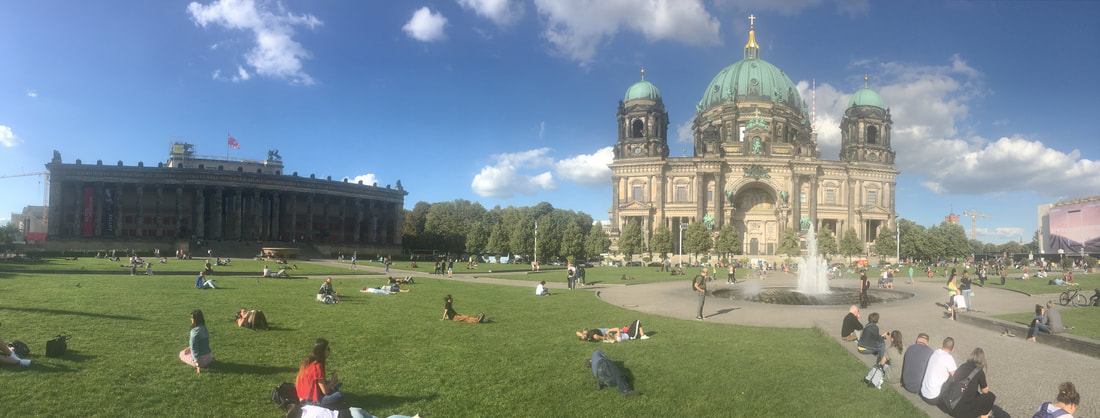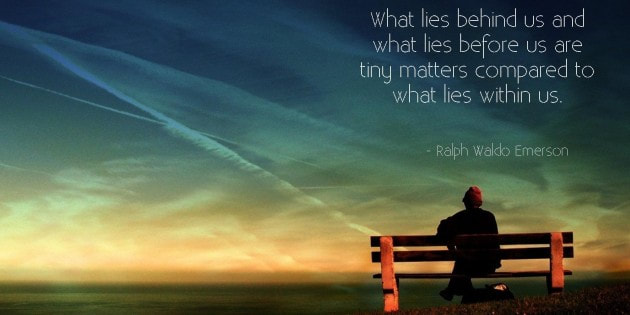Not too long ago I reviewed Ken Wilber's latest book and suggested that the evolution's leading edge left the US and moved to China or Germany. Now I can confirm that the Square of Heavenly Peace | 天安门 is not in Beijing but in Berlin. A space of heavenly peace | 天安 or great harmony | 大同 requires above all an open and inclusive society, which allows pluralism and individual diversity. Germany has to a certain extent managed to create such a space. Wilber explains why the US has failed, and I couldn't think of a single Chinese city where such an atmosphere would be possible; hence I must conclude that China is probably on the wrong path or simply not there yet.
Sure enough, our concepts of heaven are as diverse as our tastes for music. A Chinese version of this afternoon would probably involve crunchy chicken feet, rotten tofu and some outdated Wang Fei tunes. The problem is though above all, that Chinese governance does not allow pluralism, but drives its subjects towards a monolithic cultural self-understanding, which per se makes a space like this impossible.
An hour later I take the opportunity to participate in the evening worship inside the cathedral, partly to avoid the entrance fee, which I donate instead to the excellent Bulgarian street musician in the Lustgarten | Garden of Pleasures; partly because I felt lying on the lawn, staring into the crystal blue sky and watching fat white clouds passing by, that this is how services ought to be: in open space, with gentle music, much time to dream and listen to God's day language, i.e. silence.
The golden inscription over the huge entrance gates reads, Cometh to me, you, who is burdened with misery and pain, I shall replenish your thirst for joy, and makes me recall psychologist Martin Seligman’s explanation why in particular the catholic church has nothing to offer to the contemporary members of a pleasure society. Who, in God’s name, who would give a damn to enter a place which promises salvation from misery and pain, if you can experience bliss just outside?
The cathedral is a splendid baroque piece of architecture, both from the outside as well as in its interior, which despite only slightly more than 1000 seats gives because of its vast dome the impression of being gargantuan. Some buildings indeed are made to convey grandness and provide the space to understand hierarchy and authority. The organ, a beautiful and surely the most fitting instrument to display the creator's might, contributes to a quite different atmosphere: man is minuscule in front of God (or the Hohenstaufen family who commissioned the construction of the cathedral in the late 19th century). All integrative kindness and brotherhood from the gardens in front of the cathedral is gone and substituted with an atmosphere of heavenly absolutism. This, too, must put people off from attending services.
A female vicar welcomes very few attendees and invites the still much larger number of tourists to join the evening worship. Large boards in German and English at the entrance ask to not disturb daily weekday services at 6pm and morning weekend services. The instructions remain unread, the vicar’s voice remains unheard to most and reminds me of how Germany and Europe deal with recent migration waves and the society at large. We have lost the competence of listening and are on permanent self broadcasting as sound engineer Julian Treasure lucidly tells us.
A probably Southern European family with seven children of all ages occupies the three first rows of the right second seating section. The mother tries with her youngest son desperately to take a selfie with the altar concave in the background. Her son tears the mobile out of her hand and victoriously jumbles back to the seating rows where he starts a game on the smart phone while his older sisters watch him. Their father pulls out his mobile in turn to catch the moment from the back: entire family gaming in Berlin during a holy service. Wham! Posted. Whishhh. Read by two dozen friends back in Bulgaria.
Two older German ladies a few rows before me in the left second seating section watch the scene and shake their heads in disapproval only to leave a few minutes later in the middle of the service. A young chubby Asian woman walks down the main hallway, stops right in the middle of the cathedral to pull out her semi professional camera and takes a shot; obviously unaware of the official worship, she continues to walk slowly towards the altar, where the vicar briefly explains how the event is structured, implicitly telling all tourists to respect space and time. The Asian woman takes a left turn right in front of the vicar and takes another shot from the pulpit, there noticing that something is awkward when a couple sitting in the left first seating section starts to chat and laugh about her.
The vicar recites from the Bible and elaborates on the purpose of sleep. The Lord, she says, cares of his children during sleep. He does so without asking anything in return. And such is the nature of sleep, its without pay and not subject to performance or profit, despite market forcing cutting in on this sacred realm. The truly important things, she continues, we do not receive through labor or toil, but without being asked anything in return. I can’t believe what I hear. Sounds to me like unconditional basic income. Everything for everybody without any commitment to a common good in return. I simply can’t believe that things work like that. Such a statement defies the laws of nature and is therefore not accessible to the rational and critical mind. Energy output demands energy input. In other words: there is no free lunch. And yes: I am in favor of a basic income, but not an unconditional one. People need to fulfill minimal standards of behavior, in particular when it comes to ecology. And no: I don't believe that there is a shepherd God who gives to his sheep all they want without wanting anything in return, but blind faith.
Dozens of tourists, most of them out of my field of vision, continue their visit during the service in utter disrespect of local norms, and I muse what would happen with such people in a predominantly Muslim country, when they would visit a mosque, or in China, when they would visit the Great Hall of People, which Ian Johnson brilliantly describes as modern China’s temple of rituals. A society needs both integration and hierarchy, openness and structure. Excess top down hierarchy in religion and governance respectively has made life in Muslim nations and China a burden for their subjects. They extend law and order from on sphere of life to all. Excess laissez faire policies and an exaggerated emphasis on individualism has perverted Western democracies like Germany into places of unruly chaos. Principles of equality and liberty have been driven to absurd levels. There is much to learn from each other.
A public square like the Lustgarten | Garden of Pleasures clearly serves the purpose of bottom up exploration. Most people were literally exploring the sky bottom up this afternoon; and rightly so. No rules apply, but only those minimal standards of any society which wants its members to interact in peace. A religious building like the Berlin Cathedral is a space though, which people who believe in a spiritual hierarchy attend to seek guidance for their own top down executive focus. Not only minimal standards of social behavior, but observance of particular rules of that confession apply and should be enforced accordingly. Some Confucian authority would serve hereto well.
I recall what psychologist Daniel Goleman wrote in Focus – The Hidden Driver of Excellence and venture into a conclusio ad majorem comparing neurological and psychological findings of individual performance to society at large: if excelling individuals manage to balance a triple focus, a balance between inner, outer and other focus, if it is true that the secret to their success is the ability to shift between top down executive and bottom up explorative attention, then the same must be true for an excelling society. It requires bottom up focus which allows space and time for jolly exploration as well as a top down focus which enables us to efficiently strive for a common good. It does not only take enlightened leaders to tell us when to shift from one to the other, but better self leadership in all of us.


 RSS Feed
RSS Feed